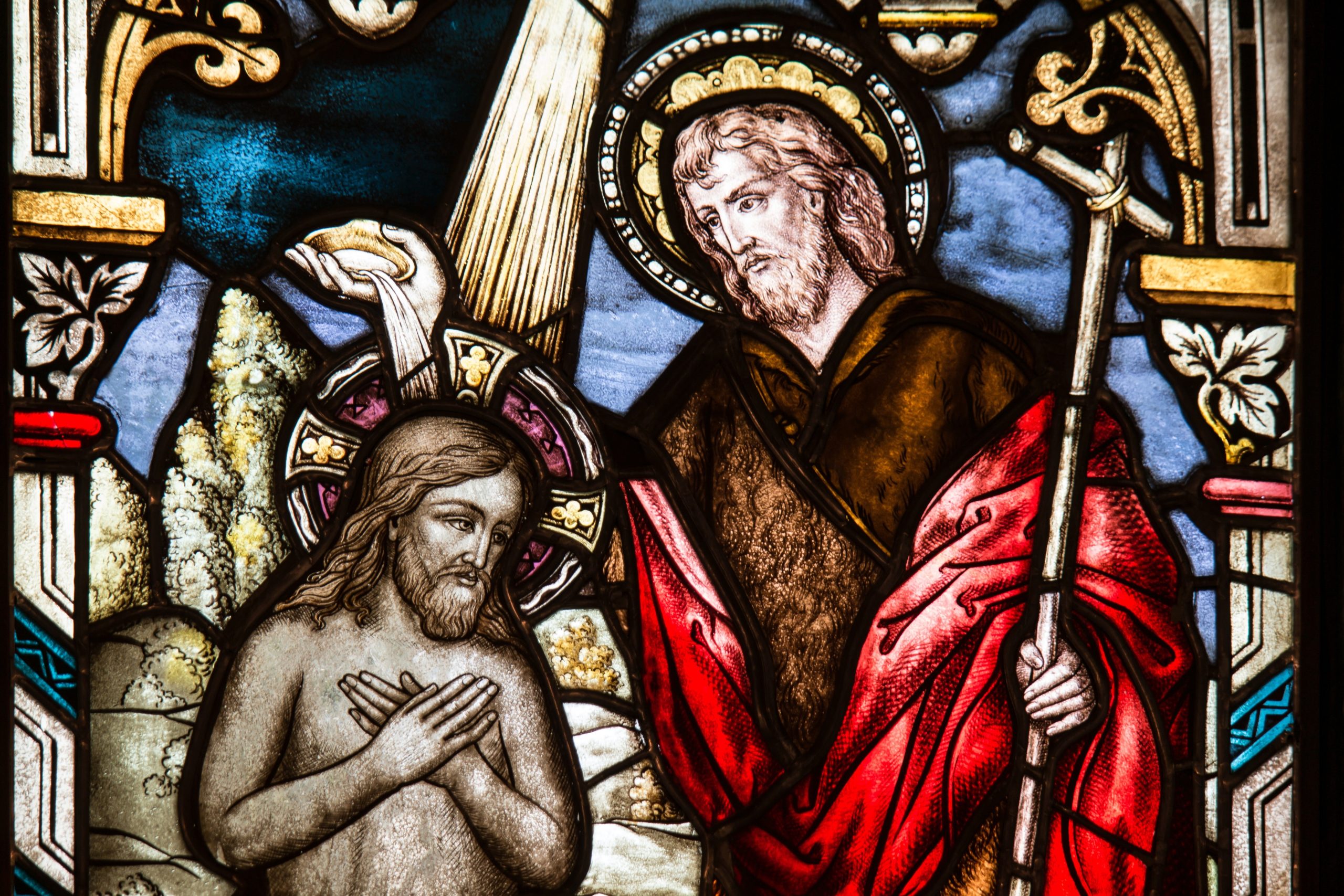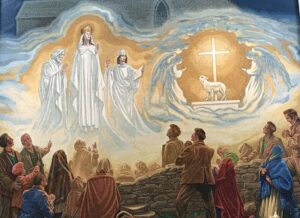When we think of John the Baptist, we tend to picture a “fire and brimstone” preacher telling people to repent. But the Baptism in the Jordan leads us in a better direction to reveal who John the Baptist was. John was present when the Blessed Virgin Mary visited his mother Elizabeth. He recognized his savior and leapt for joy in his mother’s womb. From this moment we know that John was special. Luke 1:15 says “he will be filled with the Holy Spirit in his mother’s womb.” The Holy Spirit filled John with sanctifying grace and he responded to this grace throughout his life.
John spent years fasting and praying. Fasting magnifies our spiritual life and deepens our relationship with God far beyond what prayer alone can do. Fasting allows us to see the things of God more clearly and be more open to the direction of the Holy Spirit. So when John preached to the people, there was no doubt he was responding to the Holy Spirit. And how does a preacher convince people to repent? By being a force so full of love that people respond to him and his message. He speaks in truth, yes, but also in love and mercy, drawing people in and inviting them into a deeper relationship with God. In order to do this, John radiated peace, love, and joy. He also radiated humility, “I am not worthy to untie the strap of his shoe.” The people came to him in droves and confessed their sins. As Catholics, we often choose to go to priests who connect with us, respond with love and understanding, and give us spiritual guidance. The people of John’s time were the same. They came in droves because he did not condemn, but offered them love, hope, and mercy.
St. John the Baptist was able to offer these gifts because he was a man of humility, the most misunderstood of the virtues. Humility is not putting ourselves down or wallowing in feelings of worthlessness. On the contrary, humility is the grace to understand who God is as Creator, to know who we are as His creatures, and to see our neighbors as beloved souls created in the image and likeness of God. In true humility we grow to love God more and seek a deeper relationship with Him. Just as fasting magnifies our prayers, it also enables us to grow in humility, and as a result, experience the fruits of the Holy Spirit. Because of John’s great humility, the Holy Spirit revealed the Messiah to him and he proclaimed for our benefit: “Behold, the Lamb of God who takes away the sins of the world” (Jn 1:29). He knew what most of Israel did not; he knew the Messiah would restore the people to the intimate relationship with God they had lost through Adam’s sin.
John’s call was a call to love, a call to willingly transform their hearts so that God could make His home there. The words of John still speak to us today, inviting us to transform our hearts through prayer and fasting. Our Lord loves us so much that He offers us the same grace that He gave John — to come before Him face to face and experience the love that surpasses all others. He humbles Himself in the form of bread and waits for us to approach in Eucharistic Adoration so that He may speak to us in the quiet of our hearts. And if we invite Him, He will make His home here.





